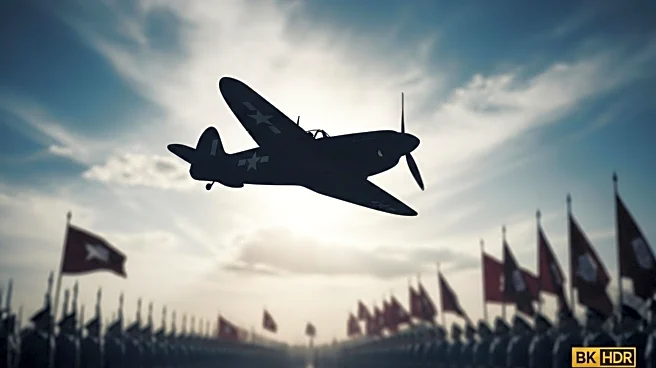What is the story about?
What's Happening?
Relatives of the American Volunteer Group, known as the Flying Tigers, have been invited to a military parade in Beijing commemorating the end of World War II. The Flying Tigers were a group of American pilots, mechanics, and support personnel who fought alongside China against Japan during the war. Despite current US-China tensions, these American mercenaries are still revered in China for their contributions during the conflict. The Flying Tigers are credited with destroying 497 Japanese planes while losing only 73 of their own. The group was formed in the late 1930s when China was invaded by Japan, and American Claire Chennault was hired to create an air force to defend China. The Flying Tigers' legacy continues to be celebrated in China, with several museums dedicated to their history.
Why It's Important?
The invitation to the Flying Tigers' relatives highlights the enduring bond between China and the United States despite current geopolitical tensions. This gesture underscores China's recognition of the historical contributions made by American forces during World War II. The Flying Tigers' legacy serves as a symbol of cooperation between the two nations, which could be significant in fostering diplomatic relations amidst contemporary challenges. The continued reverence for the Flying Tigers in China reflects the potential for historical ties to influence modern diplomatic interactions, offering a platform for dialogue and mutual respect.
What's Next?
The military parade in Beijing may serve as an opportunity for China to showcase its historical alliances and military prowess. The presence of the Flying Tigers' relatives could be leveraged to promote narratives of cooperation and shared history between China and the United States. This event might also prompt discussions on how historical alliances can inform current diplomatic strategies, potentially influencing future interactions between the two countries.
Beyond the Headlines
The Flying Tigers' story highlights the complex interplay of historical memory and contemporary politics. Their legacy is a reminder of the potential for historical narratives to shape national identities and international relations. The reverence for the Flying Tigers in China may also reflect broader cultural dynamics, where historical figures are celebrated as symbols of resilience and cooperation. This event could spark discussions on the role of historical memory in shaping diplomatic strategies and fostering international understanding.
















